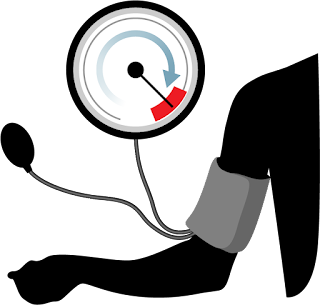Headache: Symptoms, Causes & Remedies
Title: Headache: Causes, Symptoms, and Effective Remedies
Introduction:
Headaches are a common ailment experienced by people of all ages. Whether it's a dull ache or a throbbing pain, headaches can significantly impact our daily lives and hinder our ability to perform routine tasks. Understanding the causes, symptoms, and effective remedies for headaches is crucial in managing and alleviating this common discomfort. In this article, we will explore the various types of headaches, their underlying causes, and practical ways to find relief.
Types of Headaches:
1. Tension Headaches:
Tension headaches are the most common type, often characterized by a dull, steady pain that wraps around the head. Stress, poor posture, lack of sleep, or eye strain are known triggers for tension headaches. They can last for a few hours to several days.
2. Migraines:
Migraines are intense, throbbing headaches often accompanied by additional symptoms such as nausea, sensitivity to light and sound, and sometimes visual disturbances. They can last anywhere from a few hours to several days. Hormonal changes, certain foods, stress, and environmental factors are known to trigger migraines.
3. Cluster Headaches:
Cluster headaches are rare but intensely painful headaches that occur in cycles or clusters, typically lasting weeks or months and then disappearing for a while. These headaches are often localized around one eye and may be accompanied by redness, tearing, and nasal congestion. The cause of cluster headaches is still not fully understood.
Causes and Triggers:
- Stress and tension
- Dehydration
- Lack of sleep or disrupted sleep patterns
- Eyestrain from prolonged screen time
- Poor posture
- Hormonal changes
- Certain foods and beverages (e.g., caffeine, alcohol, processed foods)
- Environmental factors (e.g., strong odors, bright lights, loud noises)
- Sinus congestion or infection
- Medication overuse (rebound headaches)
Symptoms:
Headaches can manifest in various ways, and the symptoms may vary depending on the type of headache. Common symptoms include:
- Head pain (dull, throbbing, or pulsating)
- Tenderness or pressure in the head or neck
- Sensitivity to light and sound
- Nausea or vomiting
- Blurred vision or visual disturbances
- Fatigue or irritability
Remedies and Management:
1. Lifestyle Changes:
- Practice stress management techniques (e.g., deep breathing, meditation, exercise)
- Maintain a regular sleep schedule and ensure adequate rest
- Stay hydrated by drinking plenty of water throughout the day
- Limit caffeine and alcohol consumption
- Avoid trigger foods and establish a balanced diet
- Maintain good posture and take regular breaks during prolonged screen time
2. Over-the-Counter Medications:
- Nonsteroidal anti-inflammatory drugs (NSAIDs) like ibuprofen or aspirin can help relieve mild to moderate headaches.
- Acetaminophen can be effective for tension headaches, but caution should be exercised to avoid exceeding the recommended dosage.
3. Alternative Therapies:
- Apply a cold or warm compress to the affected area.
- Practice relaxation techniques such as yoga, massage, or acupuncture.
- Engage in regular physical exercise to reduce tension and improve blood flow.
4. Seeking Professional Help:
- If headaches become severe, frequent, or significantly impact daily life, consult a healthcare professional for a proper diagnosis and personalized treatment plan.
- Prescription medications may be recommended for chronic migraines or cluster headaches.
Conclusion:
Headaches can be disruptive and debilitating, but with proper understanding and management, their impact can be minimized. By identifying triggers, adopting healthy lifestyle practices, and exploring various remedies, individuals can take control of their headaches and find relief. Remember, if headaches persist or worsen



Comments
Post a Comment